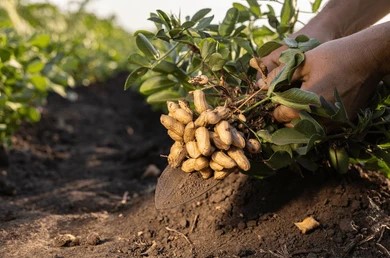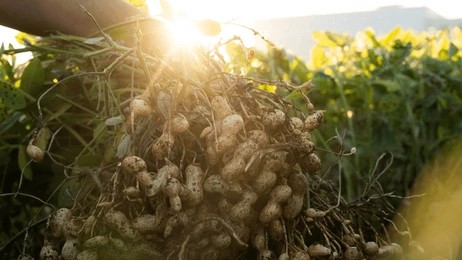Which Peanut Variety is Best in Nigeria? The Secrets of International Marketing

Nigeria is one of the largest producers of peanuts (also known as groundnuts) in Africa, contributing significantly to both local consumption and international exports. The country produces a variety of peanuts suited for different uses, from direct consumption to oil extraction. However, not all peanut varieties hold the same value in global markets. Understanding which peanut variety is best for local consumption and international trade is crucial for farmers, exporters, and agribusiness investors. This guide explores the best peanut varieties in Nigeria, their applications, and the secrets behind international peanut marketing success.
Major Peanut Varieties in Nigeria
1. Spanish Peanuts (Red Skin Peanuts)
- Characteristics: Small to medium-sized, red-skinned, and high in oil content.
- Primary Uses: Snack peanuts, confectionery, and oil production.
- Market Demand: Spanish peanuts are highly sought after in Nigeria for making groundnut oil and roasted peanuts. They are also exported to international markets where they are used in confectioneries and peanut-based products.
2. Virginia Peanuts
- Characteristics: Large kernel size, high yield, and commonly grown in the northern regions of Nigeria.
- Primary Uses: In-shell roasted peanuts, peanut butter, and snack foods.
- Market Demand: Preferred for its larger size, making it more attractive for high-end peanut snacks both in Nigeria and globally.
3. Runner Peanuts
- Characteristics: Medium-sized kernels, high yield, and consistency in kernel shape.
- Primary Uses: Peanut butter production and processed food applications.
- Market Demand: Mostly in demand for peanut butter production and industrial uses.
READ MORE: A Comprehensive Guide to Profitable Peanut Farming in Nigeria
4. Valencia Peanuts
- Characteristics: Sweet taste, small to medium size, and bright red skin.
- Primary Uses: Boiled peanuts, snacks, and peanut candy.
- Market Demand: Popular in local markets but less dominant in international trade.
Factors Influencing the Best Peanut Variety in Nigeria
1. Climate Suitability
- Spanish and Virginia peanuts perform well in the dry, arid regions of Northern Nigeria (Kano, Kaduna, Katsina, and Sokoto) due to their drought-resistant nature.
- Runner peanuts thrive in regions with moderate rainfall and well-drained soil.
2. Consumer Preferences
- Nigerian consumers prefer Spanish peanuts for oil extraction and roasted snacks.
- Virginia peanuts are gaining popularity in urban centers for premium snack consumption.
3. Industrial Applications
- The peanut oil industry in Nigeria heavily relies on high-oil content Spanish peanuts.
- Confectionery industries prefer Virginia and Runner peanuts due to their uniform size and taste.
4. Export Potential
- The EU and Asia favor Virginia and Spanish peanuts due to their quality and oil content.
- Meeting international food safety standards (such as aflatoxin-free peanuts) is crucial for export success.
The Secrets of International Peanut Marketing
1. Quality Control and Certification
- Ensuring low aflatoxin levels through proper drying and storage techniques.
- Obtaining certifications such as HACCP and GMP for better export credibility.
2. Branding and Packaging
- Well-packaged and branded peanuts fetch higher prices in both local and international markets.
- Exporters should invest in vacuum-sealed and attractive packaging to appeal to foreign buyers.
3. Market Segmentation and Targeting
- Understanding different consumer needs in Europe, Asia, and the Middle East.
- Developing peanut varieties and products tailored for specific markets (e.g., organic peanuts for European buyers).
4. Digital Marketing and E-Commerce
- Utilizing online platforms such as Alibaba, Amazon, and African trade networks to reach international buyers.
- Leveraging social media for brand promotion and customer engagement.
5. Trade Agreements and Logistics
- Taking advantage of trade agreements such as the African Continental Free Trade Area (AfCFTA) to access broader markets.
- Ensuring efficient shipping and logistics to minimize costs and maintain peanut quality.
Challenges Facing Nigerian Peanut Farmers and Exporters

Which Peanut Variety is Best in Nigeria? The Secrets of International Marketing
1. Aflatoxin Contamination
- Poor post-harvest handling leads to aflatoxin, a major barrier to international trade.
- Solutions: Improved storage facilities, better drying techniques, and aflatoxin-resistant peanut varieties.
2. Lack of Modern Processing Facilities
- Many Nigerian farmers still use traditional processing methods, reducing peanut quality.
- Solutions: Investment in peanut shelling and sorting machines for quality improvement.
3. Limited Access to International Markets
- High tariffs and stringent regulations make it difficult for Nigerian peanuts to compete globally.
- Solutions: Government intervention, trade fairs participation, and direct engagement with buyers.
Conclusion
The best peanut variety in Nigeria depends on the purpose—Spanish peanuts dominate local markets for oil and snacks, while Virginia peanuts have a higher export demand due to their large size and quality. To succeed in international peanut marketing, Nigerian farmers and exporters must focus on quality control, proper branding, and leveraging e-commerce for wider reach. Addressing challenges such as aflatoxin contamination and processing inefficiencies will further enhance Nigeria’s competitiveness in the global peanut industry.
By adopting international best practices, Nigerian peanut farmers can unlock higher profitability and solidify their position in the global peanut trade.

Leave your comment